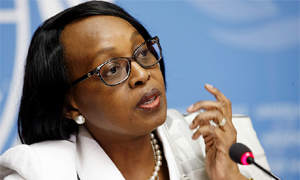FOR many years now, the sexual reproductive health and rights (SRHR) of women and girls have received increased attention from various stakeholders, particularly so, because they are the most vulnerable group in society.
However, this tilt towards women has resulted in a considerable gap in the conversation around reproductive health for men.
There is little discourse on other reproductive health options available to men, leading to a lack of awareness, discomfort, and misconceptions.
Today, a number of men in Zambia still believe that contraception uptake as a way of preventing unintended pregnancy, is a preserve of women alone and that they (women) must carry the burden of ensuring there is birth control.
With as many as 30 per cent of pregnancy-related deaths estimated by the Ministry of Health (MoH) to be caused by unsafe abortion, and 30 – 50 per cent of acute gynecological admissions as shown by hospital-based studies also pointing to unsafe abortion, now is the time for male involvement.
Besides the well known barrier method (condom use), a method of contraception that has stood a test of time in males, Vasectomy, though shrouded in myths and misconceptions, is one other effective option that men can explore to relieve the family planning burden on women.
Consultant Obstetrician and Gynecologist at the University Teaching Hospital (UTH) Samson Chisele says
although there is very little acceptance of the vasectomy option among men in Zambia, it is permanent, safe and effective.
According to the Guttmacher-Lancet commission on SRHR, vasectomy is a surgical procedure that involves the cutting, closing or blocking and sealing of the Vas deferens (a tube that carries sperm from the testicles to the urethra) to prevent the sperm from entering the semen.
“The vasectomy procedure is typically done under local anesthesia and takes just about 30 minutes with little or no risk of complications. Recovery time is minimal and most men can resume normal activities within days,” Dr Chisele said.
“After having a vasectomy, a man can still enjoy their conjugal rights without any problems, the sex drive and ability to have sex does not change, the only difference is that sex would not result in pregnancy,” he added.
Vasectomies are readily available in Zambia with government hospitals offering the procedure free of charge.
The author took a random survey on the Copperbelt to determine the level of understanding of vasectomy among men and discovered that there was a huge knowledge gap.
One of the respondents Mwanza said, “Enjoying conjugal rights in marriage is something that strengthens the union, now can you imagine if I undergo a vasectomy and then I become impotent or start failing to function in bed as a result, my wife will run away, hence, I cannot do it.”
Another responded said he had no idea of any other existing method of contraception for men apart from the barrier method.
“The only method of contraception for men as far as I know, is a condom. I don’t have any idea about a vasectomy and where it is performed in Zambia, I guess it must be very expensive,” James said.
In contrast to Mwanza and James, Gift said, “my wife and I have agreed the maximum number of children we need to have, and thereafter we can explore options of a method of contraception. I have heard about vasectomy and I wouldn’t mind to undergo the procedure but first, I need more information about it.”
From the responses above, it is clear that uptake of vasectomy still remained low in Zambia owing to limited and lack of information.
This results in the burden of family planning falling on women, as reflected in the global contraceptive mix where tubal ligation constitutes 27 per cent, while vasectomy stands at just below three per cent.
The knowledge gaps have the potential to perpetuate gender inequality in family planning when men are not held accountable for their active participation.
In addition to that, focusing on half the population in family planning efforts may inhibit the gains attainment in Universal Health Coverage (UHC).
Therefore, it is crucial for stakeholders to include men in the conversation around family planning, as it does not take resources away from reproductive healthcare for women.
Men taking the lead on contraception management can relieve their partners of the default responsibility often placed on women, and provides another safe and viable option for those seeking family planning resources.
During the Africa Health Agenda international Conference (AHAIC) last month, Dr Matshidiso Moeti, the WHO Africa region Director said, “We cannot overlook this critical opportunity to meet men and boys where they are; men need to see themselves as equal partners and essential to the conversation, and we must work to expand, improve, and increase access to their contraceptive options to achieve true reproductive health equity.”
It is crucial to adopt the same mentality for men as it is being for women when it comes to family planning.
Keep your comments coming to moseschimfwembe@gmail.com








